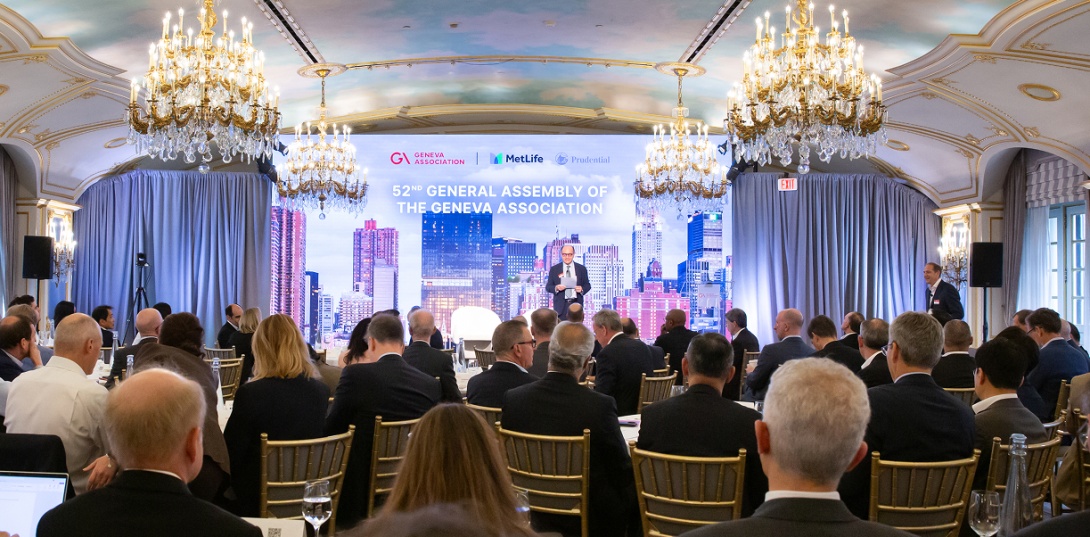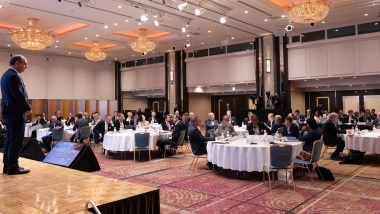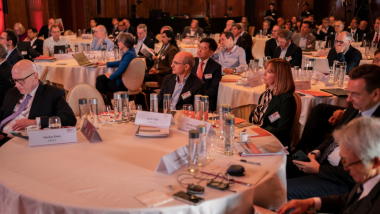Hosted by MetLife and Prudential Financial
Insurers are navigating a world defined by compounding crises and rapid transformation. The Geneva Association’s 2025 General Assembly explored how the industry can respond to shifting geoeconomics, accelerating climate threats, and technological disruption by leveraging innovation and collaboration to build resilience and unlock new opportunities.
Update on the Geneva Association
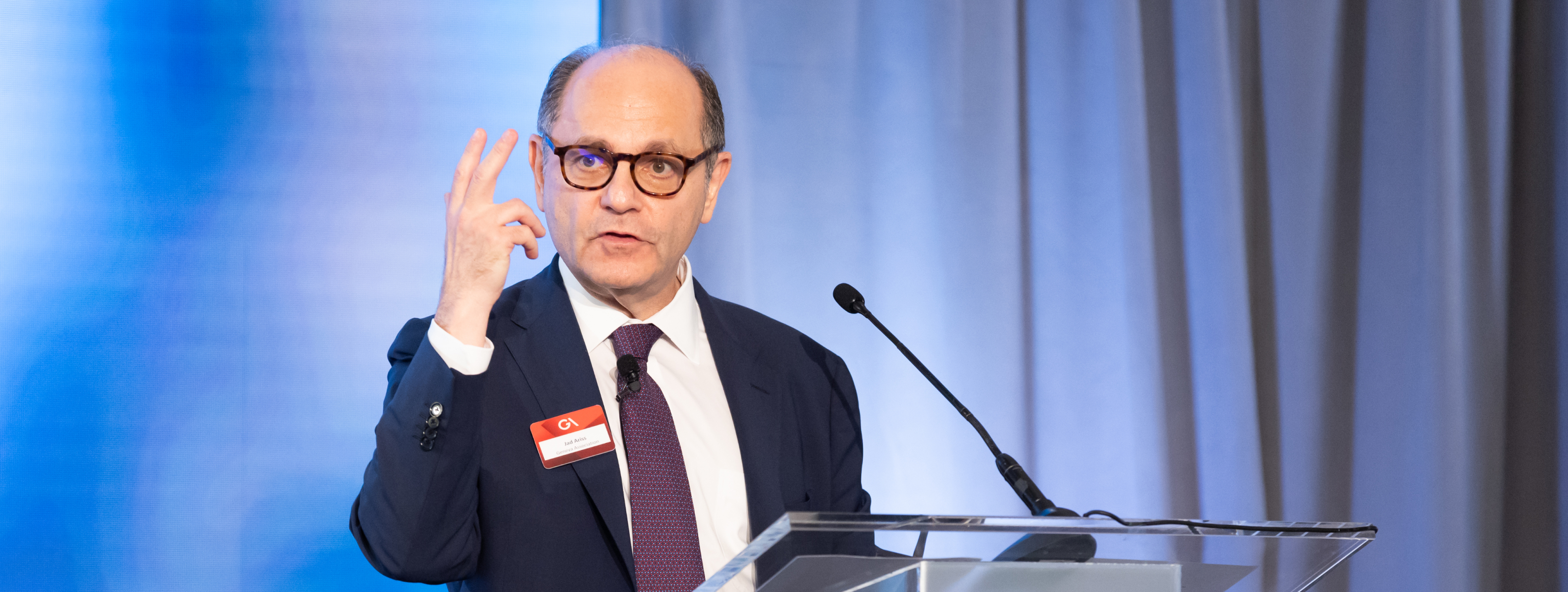
Jad Ariss, Managing Director, Geneva Association
Over the past year, the Geneva Association addressed intensifying global challenges, including geoeconomic fragmentation and climate-related disasters, through targeted research and industry dialogue and collaboration.
The organisation’s recent, major research reports include the following:
- Insurance in a Fragmented World Economy (January 2025) analyses the effects of economic fragmentation on global risk-sharing, while identifying opportunities for insurers in areas such as political risk insurance; it promotes the necessity for insurers to develop more extreme scenarios in their risk management toolbox.
- Safeguarding Home Insurance (April 2025) explores how climate change and socioeconomic drivers (e.g. urbanisation, land use, outdated building codes) increase home insurance risks. It recommends scaling local resilience efforts and reforming valuation and mortgage systems.
- Insurance and the Longevity Economy (February 2025) investigates lifespan, healthspan, and wealthspan trends across 12 countries, emphasising how insurers can support financial and health security for ageing populations.
- Inclusive Insurance in Advanced Economies (November 2024) identifies, based on data from six developed countries, specific underinsured segments of society – low-income households, Generation Z, and migrant communities – and proposes ways for insurers to close protection gaps.
- Catalysing Cyber Risk Transfer (December 2024) examines how cyber risk can be offloaded to capital markets using instruments such as cyber catastrophe bonds, towards increasing insurance capacity and resilience.
The Geneva Association also held key events across the globe: a Climate Conference (Boston), Chief Investment Officer (CIO) Conference (Zurich), Cyber Conference (New York City), Health & Demography Conference (Munich), Economic Forum (Barcelona), and Liability Conference (London). Between two thirds and over 90% of participants at these events rated their experience a 5 out of 5. To enhance external impact, the Geneva Association has appointed a Director of External and Stakeholder Engagement, segmented its outreach by stakeholder influence and interest, and is strengthening its engagement with academic institutions and think tanks, as well as NGOs.
Keynote speech: Managing Risk in an Unstable World

Ian Bremmer, President & Founder, Eurasia Group and GZERO Media
The geopolitical landscape is shifting, and global uncertainty prevails. Current instability stems from the US stepping back from the global order it built after World War II. Commitments to collective security, free trade, and the promotion of democracy have weakened, leaving allies uncertain and competitors emboldened.
Most countries are looking to maintain balanced relationships with both the US and China. Technological leadership is split – the US leads in artificial intelligence, while China dominates post-carbon energy technologies. Attempts to decouple, such as semiconductor export controls or data restrictions, face resistance from other countries that depend on access to both ecosystems. China is avoiding direct confrontation with the US and focusing on strengthening ties elsewhere. In Ukraine, continued conflict is expected, with the US unlikely to push for a resolution and Europe shouldering more of the burden. In the Middle East, diplomatic evolution with Iran is uncertain, while long-standing alliances (e.g. between the US and Israel) remain intact. Tensions between India and Pakistan over water and border issues are rising and could pose a major security risk.
Panel: Wall Street Finance in 2025
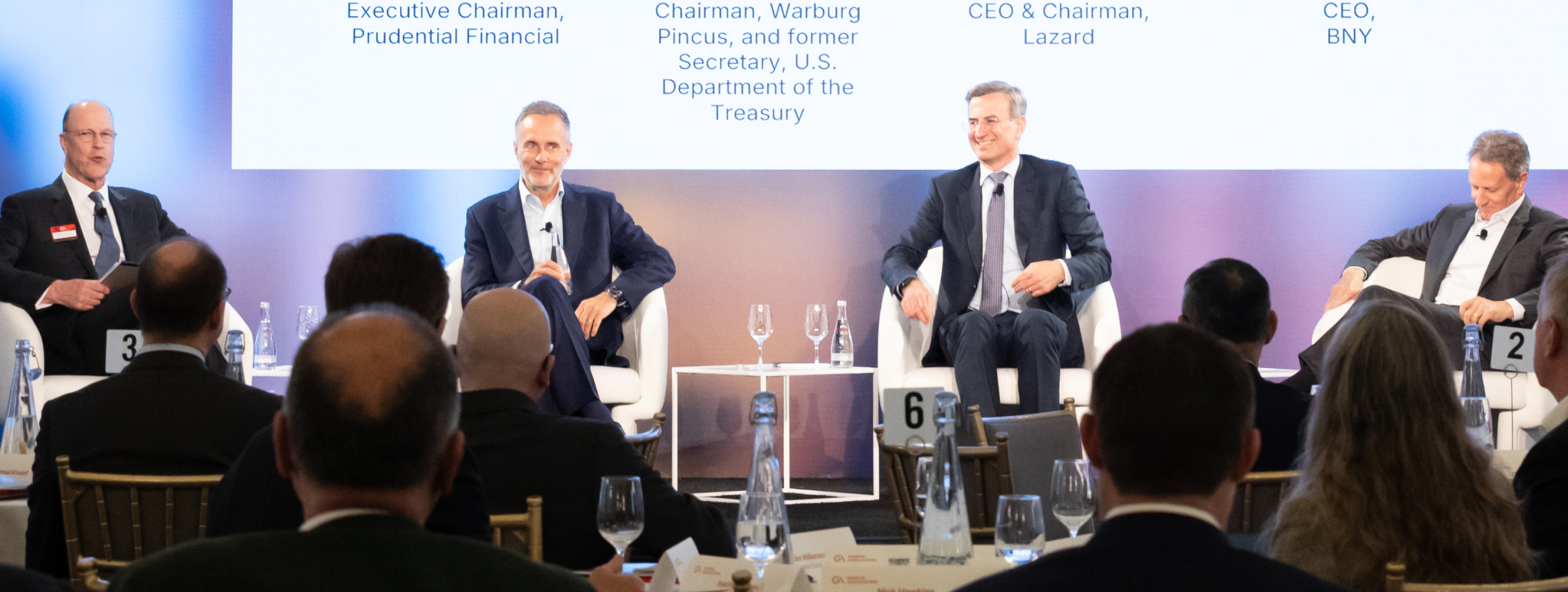
Charles F. Lowrey, Executive Chairman, Prudential Financial; Robin Vince, CEO, BNY; Peter Orszag, CEO & Chairman, Lazard; Tim Geithner, Chairman, Warburg Pincus, and former Secretary, U.S. Department of the Treasury
The US economy is navigating a complex geopolitical and macroeconomic environment. Rising populism and geoeconomic fragmentation are contributing to greater volatility and unpredictability in policymaking. This is occurring against a backdrop of what many perceive as a decline in the competence and coherence of US economic policy. As a result, global confidence in the US as a stable anchor of the world economy is weakening.
Traditionally, the international economic order has depended on a rules-based system supported by US leadership. However, US policy shifts are undermining this structure, injecting significant uncertainty into the operating environment for other governments, investors and businesses. Confidence in US commitment to global rules and norms is faltering, challenging the assumption that the country remains a reliable steward of the international system.
These challenges represent chronic, hard-to-quantify risks. The US economy faces significant left-tail risks, including uncertainty around the future of the US dollar as the world’s reserve currency, concerns about the long-term sustainability of US sovereign debt, and doubts over the continuation of the ‘exorbitant privilege’ that gives the US exceptional financial flexibility. Fears of a technical default and erratic tariff policy further compound these risks.
Yet not all outcomes are negative. Right-tail risks include the potential for renewed economic dynamism, supported by the inherent strength of the US economy and transformative technological advancements such as AI and robotics, which could drive a new wave of productivity growth. Markets have also shown resilience, as evidenced during recent volatility episodes like the ‘April tariff tantrum’. Still, the distribution of possible economic outcomes has broadened. Importantly, the shape and impact of these risks remain deeply uncertain, making this a uniquely difficult environment to analyse, forecast, or hedge against.
Keynote speech: Human Rights in a Shifting World
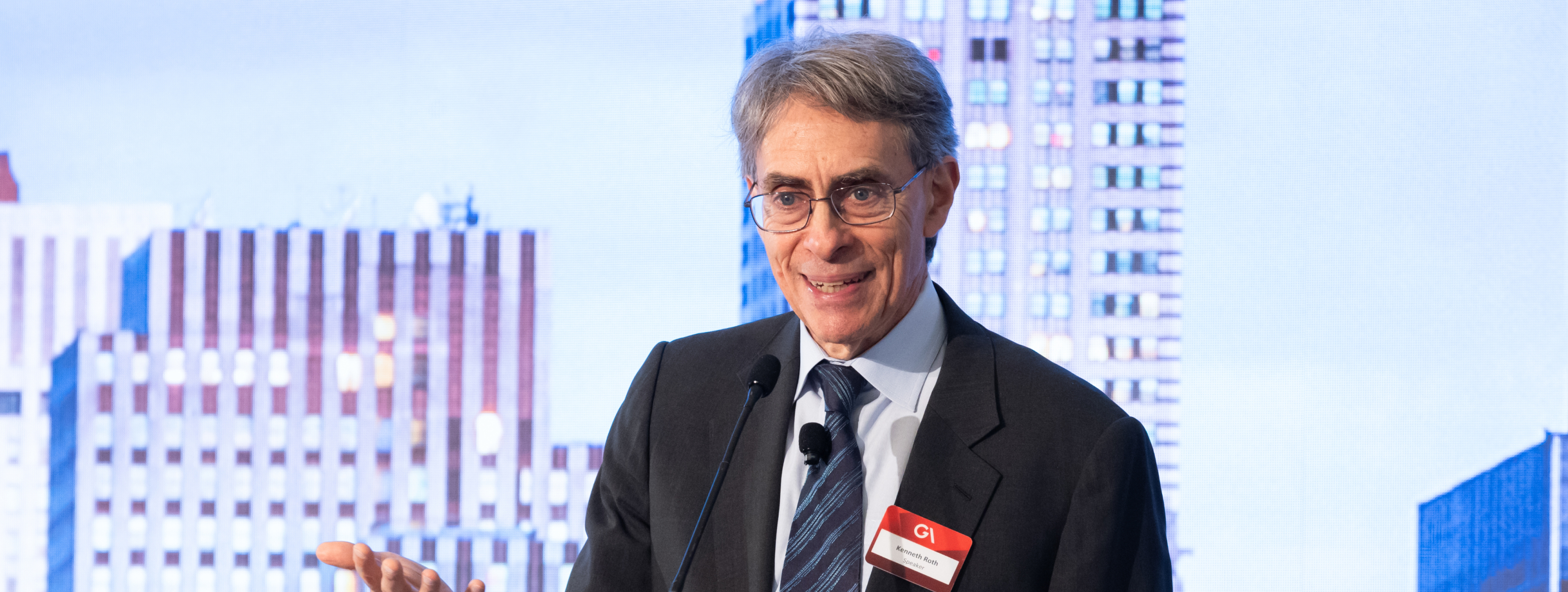
Kenneth Roth, Former Executive Director, Human Rights Watch
While democracy appears weakened in Western nations due to growing inequality and government failure to meet the needs of the working class, there are also broader global dynamics. In many autocratic states, populations are pushing back against authoritarian rule, manifest in mass protests and push for changes in power. There is a widespread demand for accountable governance, even as other regimes suppress dissent through force rather than popular legitimacy.
International humanitarian law, particularly the Geneva Conventions, faces serious violations in ongoing conflicts in Ukraine, Gaza, Sudan, Myanmar, and eastern Congo. These violations often involve deliberate attacks on civilians. Despite this, the legal norms themselves remain intact. The International Criminal Court has issued charges against high-profile leaders and continues investigations, while military doctrines in many countries still formally incorporate the laws of war. The persistent challenge lies in enforcement.
Disinformation spreads rapidly through digital platforms and sympathetic media, but authoritarian governments invest heavily in censorship alongside propaganda. This indicates that access to accurate information – from a public that demands trustworthy sources and independent journalism – still poses a threat to their control.
Supply-chain ethics are a particularly relevant area of human rights for businesses. Legal requirements around corporate due diligence remain weak, but reputational risks are growing. Known examples from around the world, involving forced labor, illicit mineral trade, and gold smuggling, highlight the potential for public backlash. Businesses are encouraged to go beyond legal compliance and anticipate scrutiny from increasingly informed consumers.
Panel: Rising Climate Risks - The ripple effect
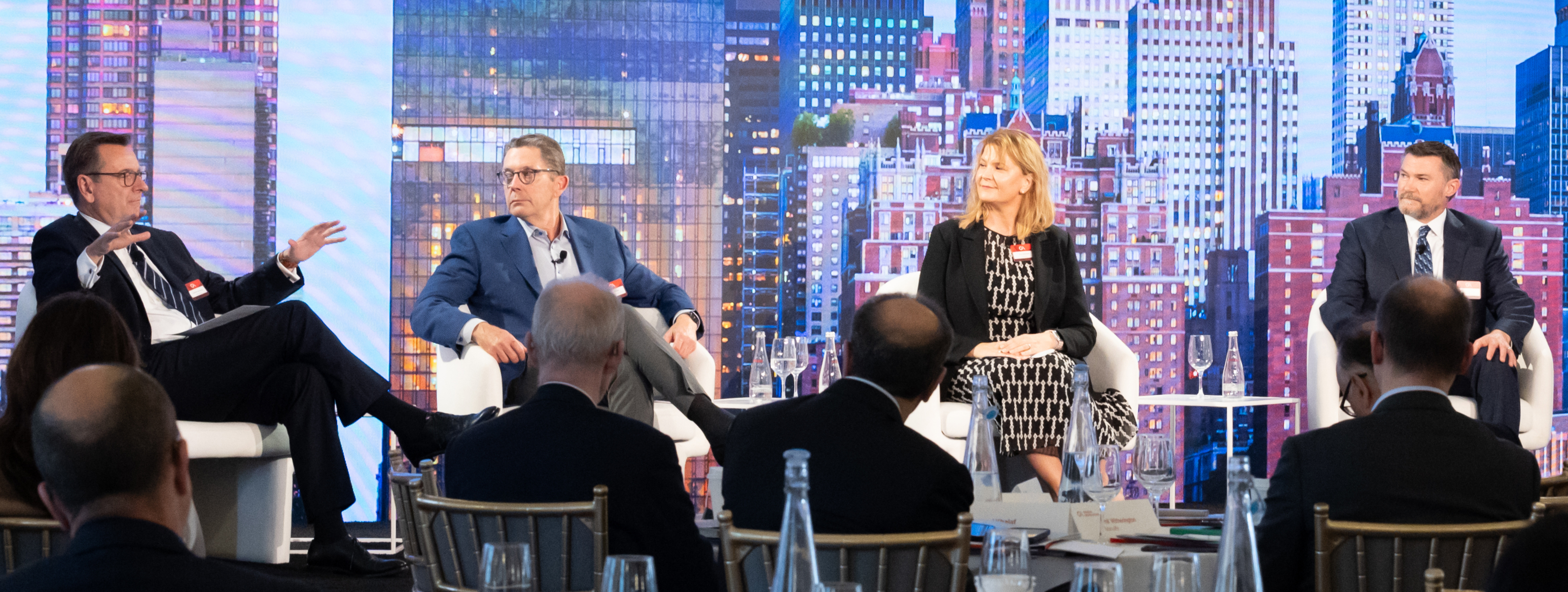
Joachim Wenning, Chairman of the Board of Management, Munich Re; Tim Sweeney, President, CEO & Chairman, Liberty Mutual Insurance; Tina Mitchell, Natural Hazards Commission, New Zealand; Dave Burt, DeltaTerra Capital
The financial impacts of natural disasters are growing, and insurance protection gaps are widening, leaving households, businesses and governments increasingly exposed to the financial and social shocks of climate disasters. As a stark illustration, in 2024, global natural catastrophe losses exceeded USD 300 billion, a 20% increase over the past decade’s average, with a large portion uninsured.
New Zealand’s Natural Hazards Commission provides universal, government-backed coverage for major perils such as earthquakes and tsunamis. Its model has enabled high insurance penetration (95%), streamlined disaster recovery, and supported large-scale managed retreat programs. By integrating scientific research and open data tools, the scheme also enhances public risk awareness and influences land-use decisions.
The US domestic market, on the other hand, faces structural challenges. Rising premiums (up 85% over five years) have outpaced income growth, pricing out many homeowners. Regulatory fragmentation, particularly state-level rate control, hinders risk-based pricing and discourages insurer participation in high-risk areas. California’s regulatory constraints, for example, contrast with Oklahoma’s more flexible, incentive-based approach, which promotes fortification through grants and insurance discounts.
Flood insurance is a major gap in the US. The outdated National Flood Insurance Program provides limited coverage, is often not mandatory, and excludes many high-risk areas. This leaves a large share of flood-exposed homes uninsured.
Improved incentives, risk signalling, and cross-sector collaboration are needed. Many resilience-enhancing investments are financially rational over time but poorly understood by homeowners. Stronger integration between insurers, lenders, regulators, and communities is essential to drive risk reduction and adaptation.
Fireside chat: Chandra Donelson
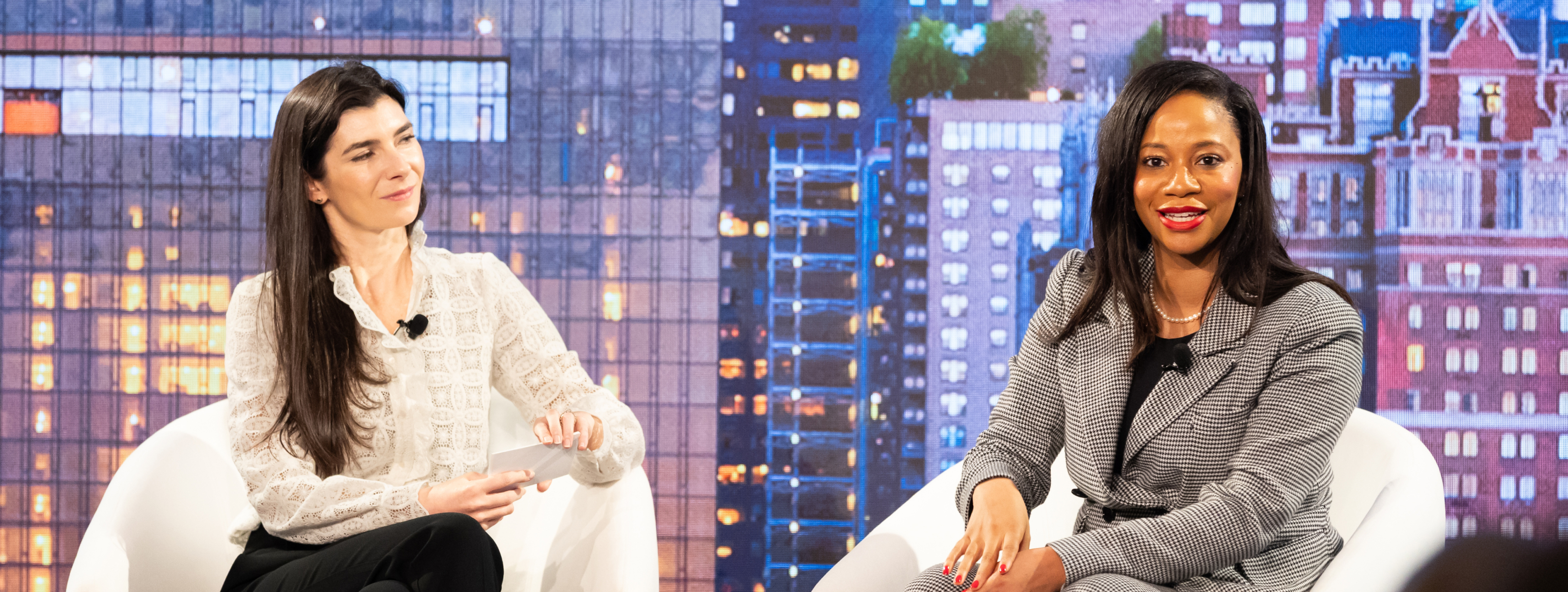
Danny Garver, MetLife (Moderator); Chandra Donelson, Author of 'The Data Detective'
In today’s fast-evolving digital economy, companies that effectively harness data and AI are likely to emerge as leaders. This demands not only technical innovation but profound cultural and organisational shifts. Building a data-driven culture begins with an assessment of data and AI maturity to pinpoint capabilities and gaps. Feedback loops – where strategy visibly reflects workforce input – will markedly increase engagement and adoption. This approach helps to demystify data as a strategic asset and align it with operational goals and customer outcomes.
Agility and experimentation are vital. By rolling out generative AI tools quickly and observing real-time usage, organisations can identify value and manage risks more effectively. Yet, rapid deployment must be paired with strong governance. Bias in training data or unclear ethical boundaries can have serious societal consequences. Cross-functional oversight, including non-technical voices, is essential to manage these risks.
As data becomes foundational in insurance – from underwriting to claims automation and customer personalisation – ensuring its quality, traceability, and strong governance is paramount. Insurers must also prepare for a shifting workforce, where AI augments human roles rather than replaces them, necessitating investment in data literacy and reskilling.
Panel: How Emerging Technologies are Transforming Traditional Business Models
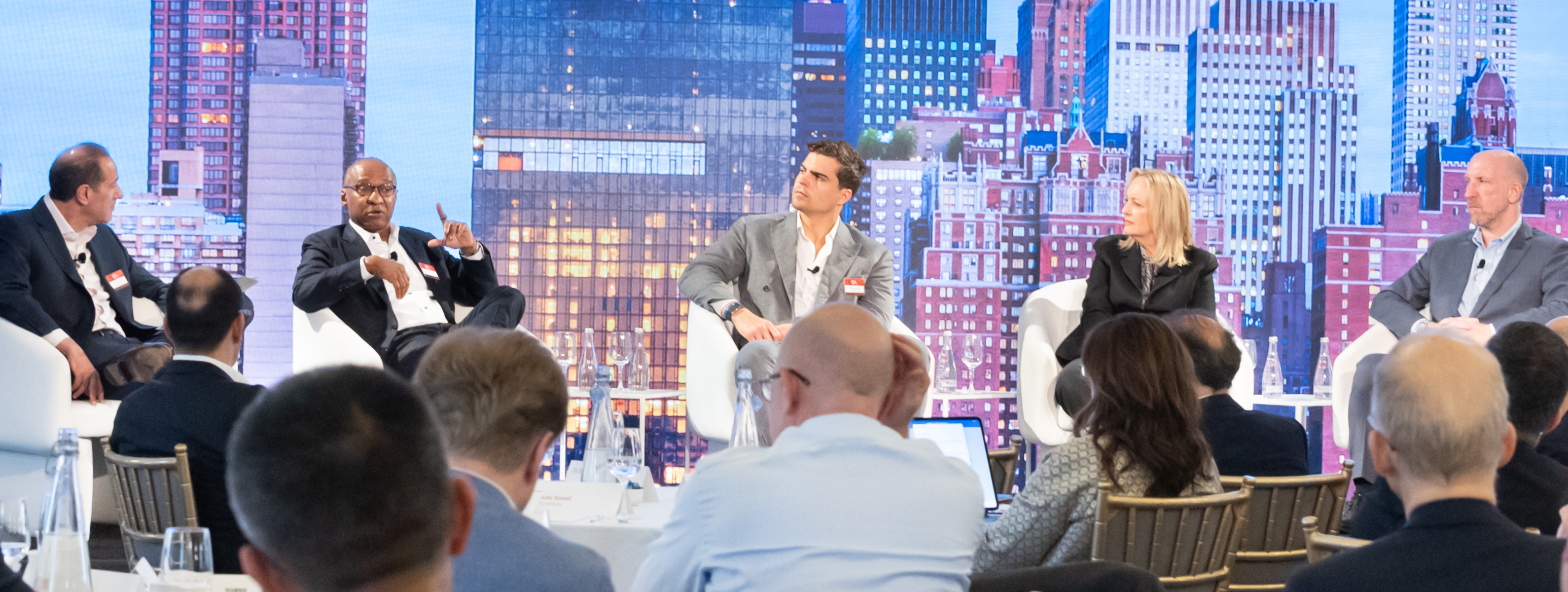
Michel Khalaf, President & CEO, MetLife; Mohamed Kande, Global Chairman, PwC; George Sivulka, CEO, Hebbia; Julie Sweet, Chair & CEO, Accenture; Phil Venables, Ballistic Ventures
The accelerating pace of technological change is transforming the risk landscape and redefining the role of insurers. Data analytics, AI and digital platforms in particular are reshaping how insurers operate, underwrite, and engage with customers.
The traditional insurance model is being tested by the volume and variety of data now available. To stay competitive, insurers must become more agile, embedding technology deeper into decision-making and customer engagement. Ethical considerations, trust, and data governance are becoming strategic priorities, as insurers increasingly rely on AI for underwriting, claims processing, and fraud detection.
Insurers are also well-positioned to support technological innovation more broadly by providing the risk frameworks and capital necessary to scale new technologies. This includes enabling the development of climate- and health-related innovations, where insurance plays a vital role in building societal resilience.
But the integration of advanced technologies requires cultural change within insurance organisations. Cross-functional collaboration will be critical, and leadership must foster an environment of experimentation and continuous learning. Insurers will also need to strengthen digital talent pipelines and invest in capabilities that allow them to adapt quickly to the shifting landscape.
Keynote speech: US Policy and the Macroeconomic Environment

Glenn Hubbard, Dean Emeritus of Columbia University's Graduate School of Business
Evaluating the challenges facing the US economy requires more than traditional risk models that rely on predictable distributions. We are operating in a world of deep uncertainty rather than calculable risk. Understanding the complexity and unpredictability of the political and economic landscape is critical, and decision-making must account for unexpected disruptions and structural shifts that resist quantification.
Rumsfeld’s theory highlights three dimensions of uncertainty. ‘Known knowns’ include erratic US trade policy, which may depress growth and raise inflation in subtle, chronic ways. ‘Known unknowns’, such as the market's reaction to trade tensions, point to fragile stock prices. ‘Unknown unknowns’, such as a collapse of the post-war economic order if the US retreats from its global leadership role, are the most troubling.
Insurers should explore ‘if-then’ logic to identify opportunities and tail risks. This encourages adaptive thinking and positions insurers to remain resilient amidst unpredictability. Despite uncertainty, opportunities exist. Declining public welfare may increase demand for private insurance solutions. Insurers can also innovate, especially by adapting products to regionalised supply chains. With changing dynamics in traditional capital markets, private credit may also become a more attractive asset class.
Fireside chat: Mariët Westermann
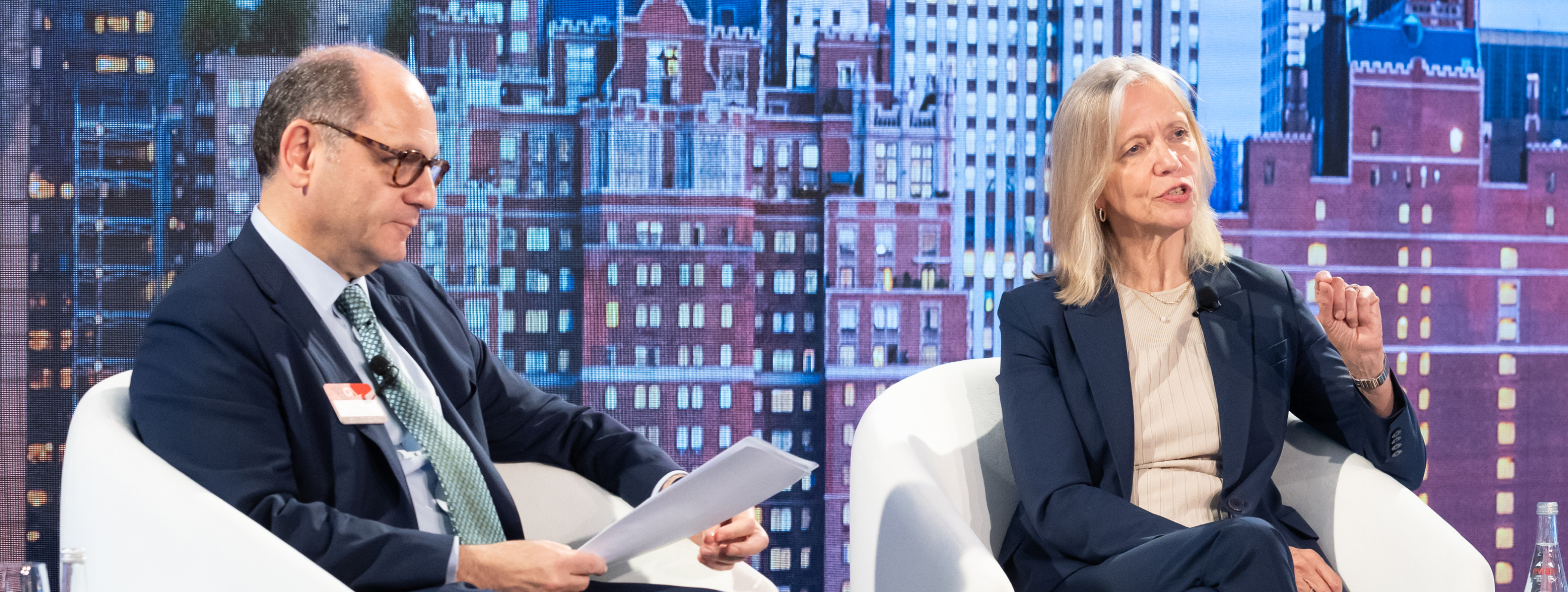
Jad Ariss, Managing Director, Geneva Association (Moderator); Mariët Westermann, Director & CEO, Solomon R. Guggenheim Museum and Foundation
The societal role of art is evolving in an increasingly polarised and technology-driven world. Museums and cultural institutions, while traditionally apolitical, are emerging as spaces for civic dialogue, social cohesion and global collaboration. By showcasing diverse cultural narratives and providing inclusive learning environments, museums help connect individuals across backgrounds, fostering mutual understanding.
Technological advances, including artificial intelligence, are reshaping both artistic creation and audience experience. Artists are increasingly leveraging AI to explore new modes of expression and critique. Museums, in turn, are challenged to rethink the nature of authorship and permanence while maintaining their mission to showcase the human spirit. At the same time, digital platforms offer opportunities to expand access and engagement, particularly for people who have not traditionally found museums welcoming.
Preserving cultural heritage in conflict zones is another area of growing urgency. International alliances, often supported through public-private funding models, demonstrate that proactive, cross-border cooperation can safeguard vulnerable artworks and monuments.
Panel: Preventive Health in the Intelligence Age - A new model for insurers
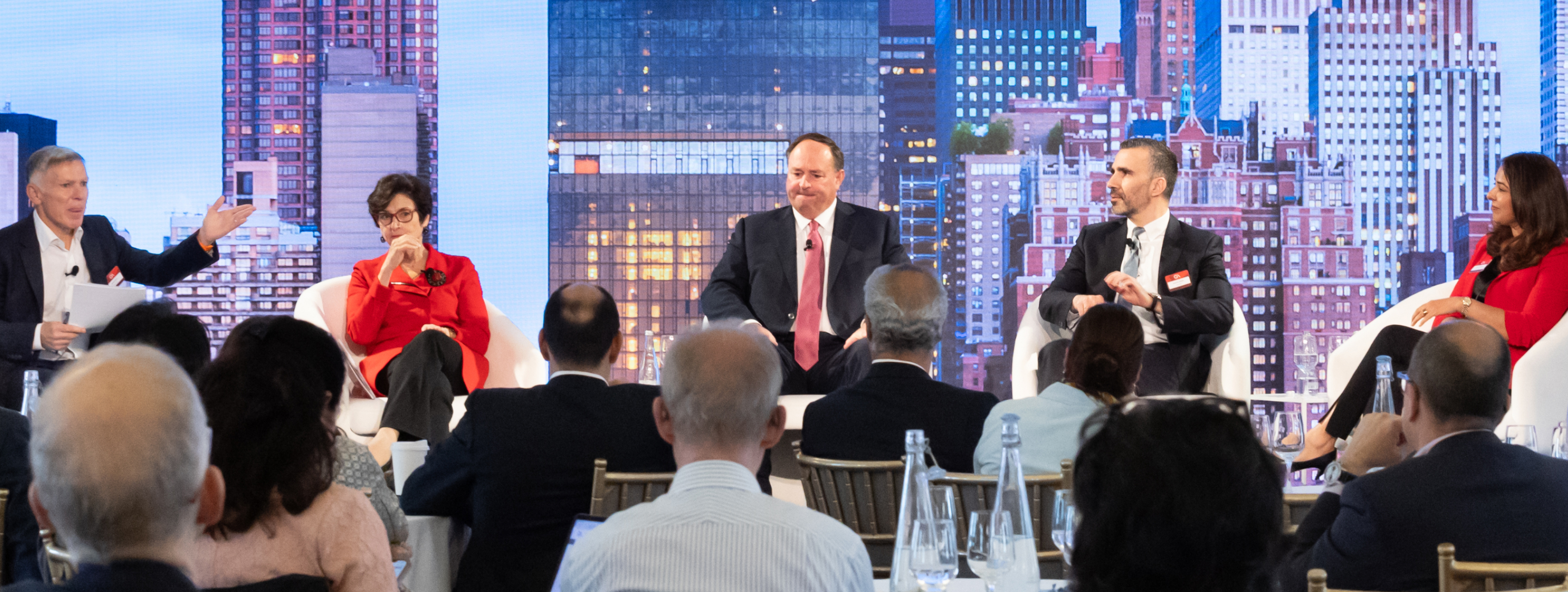
Adrian Gore, CEO, Discovery; Linda P. Fried, Columbia University; Brooks Tingle, President & CEO, John Hancock; Yiannis Mallis, Novo Nordisk; Aashima Gupta, Google Cloud
Longer life expectancies and lower birth rates are placing new pressures on health systems, labour markets, and intergenerational support structures. For insurers, this presents both challenges and opportunities.
Ageing must be reconceptualised not as a period of decline but as a productive and fulfilling life stage. This requires a shift in how societies design work, education, and care systems. Flexible retirement models, lifelong learning, and age-inclusive workplaces will be essential. Insurance products and services will need to adapt accordingly, moving beyond traditional health and life insurance to offer broader financial and well-being solutions tailored to an ageing demographic.
Technology will be key in enabling healthier, longer lives. Preventive digital tools that monitor health and promote good lifestyle choices can help extend quality of life and reduce the growing burden on care systems. Marrying preventive and predictive technologies that assess biological, socioeconomic, and geographical factors would take this up a step and elevate personalisation in both insurance and healthcare. But progress on this front remains in the early stages. Digital inclusion is also a challenge, and accessibility and inclusivity for older and less well-connected users must remain a priority for insurers.
